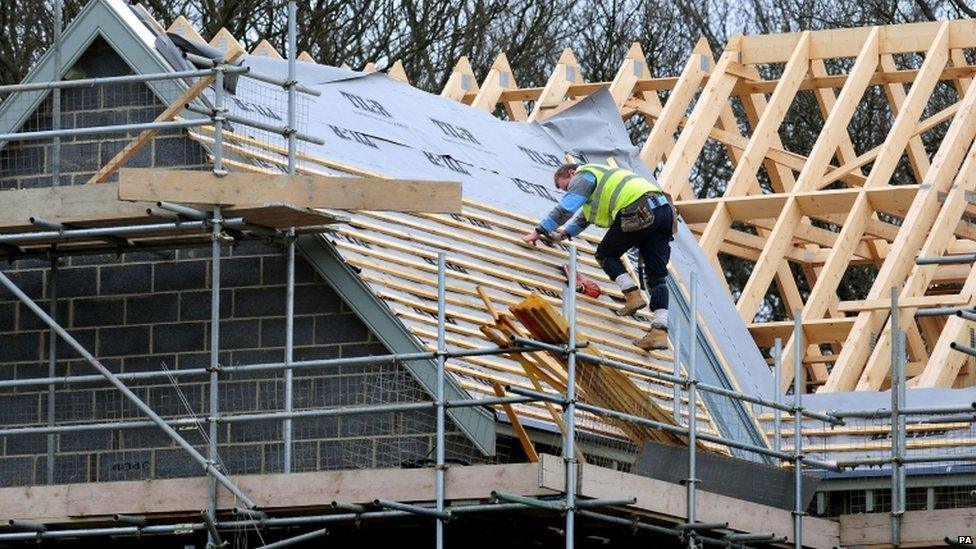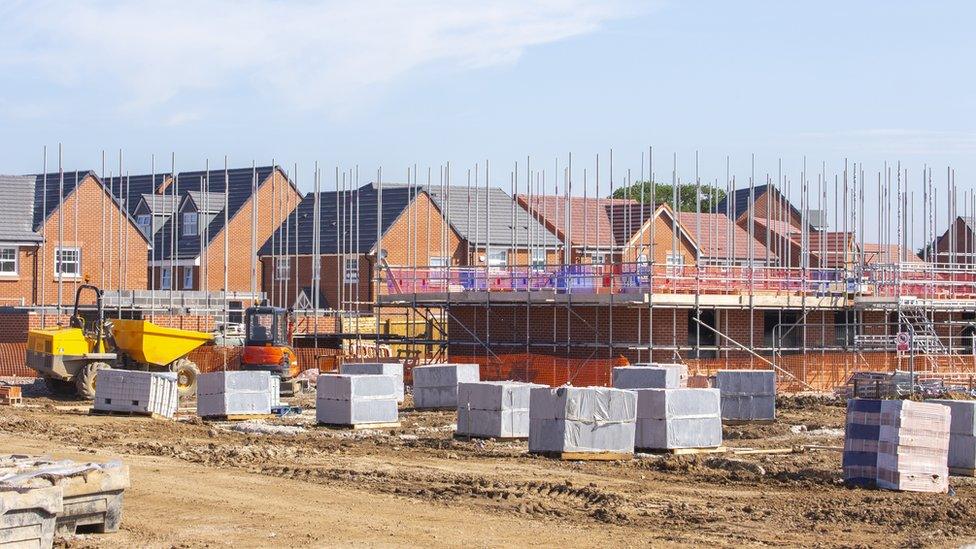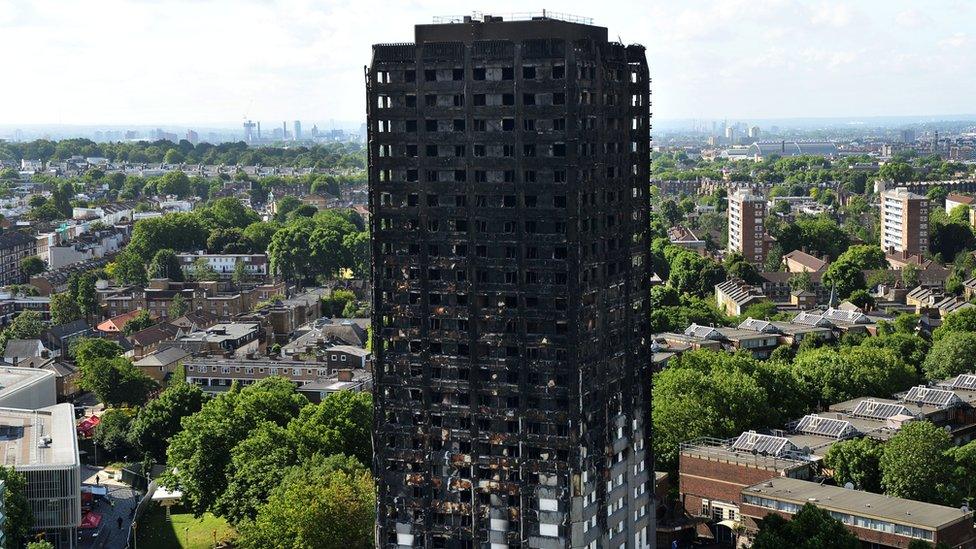'National agency needed' to enforce Scottish building standards
- Published
- comments

Greenpeace says limited checks are made on new-builds
Building standards in Scotland should be enforced by a national agency, according to environment group Greenpeace.
It criticised the current system for policing building regulations which relies on builders to certify much of their work, with limited checks by council officials.
It is argued that a consistent, tougher approach would help new home buyers, ensuring quality, where some find housebuilders are slow to rectify construction problems.
The green lobby group also argues that building energy standards should be significantly stepped up, to help reduce greenhouse gas emissions.
However, the Convention of Scottish Local Authorities (Cosla) believed that a national buildings standards agency was not necessarily the way forward.
'Expertise and capability'
The call for change comes as part of a series of reports on BBC Scotland about the implications of reducing emissions associated with climate change to net zero by 2045.
Housebuilders and the Scottish government pointed to a significant increase in the energy efficiency of new homes, with emissions down by 70% in the past three decades.
Homes for Scotland called for more action to retrofit existing homes.

Doug Parr, head of policy with Greenpeace UK, told BBC Scotland the pledge to reduce carbon emissions meant that proper inspection and enforcement of regulations had become more important.
"We need to have a proper inspection and enforcement regime for new-build housing, to make sure that housebuilders who do build shoddy houses are penalised," he said.
"More than that, they ought to go in and change them back to how they're supposed to be, according to building standards.
"That whole regime needs to change from being a bit of a loose end that local authorities have to pick up at some point, to being a properly nationally-co-ordinated programme."
'Highly energy-efficient'
He added: "In order to deliver the new-build houses we need for the 21st Century and net zero challenge, we need an agency that's going to have the expertise and capability to support local authorities in making sure these buildings are as good as they need to be.
"If we don't, we're going to have higher cost and higher emissions, and we're going to have cheated people. We're building ourselves a problem we're going to have to solve further down the line."
Homes for Scotland, representing the major housebuilders, declined to comment on the Greenpeace call, but a spokeswoman said: "We firmly believe that local authorities should be properly resourced to carry out their statutory duties and facilitate the delivery of much-needed homes.
"We work closely with the Scottish government building standards division and other industry bodies on how to move the whole system forward to ensure it works both effectively and efficiently."
The builders' representative added that "new homes are already highly energy-efficient". He said: "The focus on improvements in housing needs to be placed on existing stock - something we have been calling on for some time".
Reduced emissions
Asked about the call for a national agency to enforce building regulations, a Scottish government spokesman emphasised that responsibility lay with local authorities.
He said: "They are responsible for the operation of the building standards system. In line with legislation, when a warrant is required for new work, we expect them to undertake independent checks at design stage, and carry out reasonable inquiry prior to accepting a completion certificate before a building is occupied".
Looking to the raising of building standards in future, the St Andrew's House spokesman said they were reviewed and updated on a regular basis:
"A review considering where the greatest opportunities lie for further, cost-effective and practical improvements is currently under way and is expected to be completed in 2021," he added.
"From a climate-change perspective, building regulations have improved performance and reduced emissions from new homes by over 70% compared to the standards in force in 1990, the baseline year for climate change reporting."
Local government umbrella body Cosla said that it recognised that implications of achieving a net zero target by 2045 were "profound" and "would impact on all aspects of society and the economy",
However, it was not convinced by Greenpeace's suggestion of an agency for building standards.
A spokesman explained: "If anything the long term solution to meeting the net zero target seem more likely to involve increasing decentralisation of power to local authorities and communities. A strong, fully empowered local government will be critical to our future success in tackling the climate emergency."

BBC Scotland News is running a season of climate change coverage across radio, TV, online and social media.

- Published12 July 2019

- Published6 December 2018
